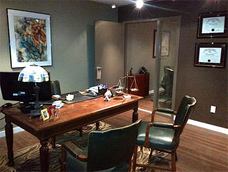
In many areas of business and commerce the default method for resolving disputes is arbitration. Why? It allows the parties to control the process of dispute resolution in a way which the ‘one size fits all’ court system does not usually allow. There are many reasons why businesses choose arbitration in preference to the courts. They include:
· Dealing with disputes disrupts the ongoing business so a quick resolution is desirable. The courts can be slow and inconvenient but an arbitration can be arranged and conducted at the time, the place and the speed the parties demand.
· The judge allocated to the case by the court may not have the expertise required to resolve often very technical and nuanced complexities. An arbitrator can be appointed by the parties who is an expert in the subject matter of the dispute.
· The courts are very public and the parties are unlikely to want to air their dispute where the media and public can report it. Arbitration is entirely private and confidential.
Family disputes, whether arising from divorce or the breakdown of an unmarried relationship, are no less complex than those which arise in the commercial world. Untangling complex financial affairs, often involving companies, trusts and a web of international property and investments, is a complex task requiring highly specialist skills and experience on the part of the lawyers. This is compounded where cultural or religious factors specific to the parties also come into the equation. When a hearing comes before the court there is no guarantee that the judge allocated will have the necessary experience. Furthermore, in many courts in England and Wales the delays in waiting for a court hearing in even a relatively simple case can run to a year or more. In the meantime the parties legal costs rise and neither is able to move forward with their life.
In 2012 came a significant development. In a joint venture between the world renowned Chartered Institute of Arbitrators, the Family Law Bar Association and Resolution, the Institute of Family Law Arbitrators was formed. IFLA trains family lawyers to become arbitrators. Further information about the scope of the IFLA arbitration scheme, the applicable rules and a list of qualified arbitrators can be found at www.ifla.org.uk.
In simple terms, the IFLA scheme operates on the basis that once the parties agree to refer their dispute to arbitration they select their arbitrator (or ask IFLA to appoint one in the event they cannot agree). The parties then sign an arbitration agreement which sets out the issue or issues for the arbitrator to decide. The parties may wish their whole dispute to be arbitrator or they may only wish the arbitrator to determine a single issue. Once the agreement with the arbitrator is signed the arbitration commences. The arbitration follows the procedure the parties have agreed upon and this may be quite different from the normal court process. Once the arbitration is heard the arbitrator makes his or her decision, called the Award, in writing. The parties having agreed to be bound by the decision of the arbitrator then submit an order to the court in the terms of the Award (to the extent that a court order is required to finalise matters between them).
Once the parties choose their arbitrator there is considerable scope to customise the procedure for the arbitration to suit the parties and the particular subject matter of he dispute. The hearings can be conducted in whatever way the parties and arbitrator agree. Where distance is an issue hearings can be dealt with by way of telephone conference call, video-conferencing, Skype or FaceTime. The parties can choose the date when the arbitration will be heard, according to the arbitrator’s availability, rather than having a hearing date imposed as the courts do. The arbitration hearing can take place anywhere in the world which is convenient to the parties. Where the issues permit it, the arbitration can be conducted entirely on paper without any face to face hearing. This flexibility and ability to tailor the procedure to the needs of the parties is unique to the arbitration process. This flexibility is likely to be particularly attractive for parties who are living abroad but having their proceedings dealt with in England or Wales. It saves on the need to travel to England for hearings (hearings which are often cancelled at short notice in any event). The arbitrator can even travel to where the parties are and hear the arbitration there.
Mediation and arbitration are increasingly seen as the better option compared to going to the courts. These options lie in a broad spectrum. At 36Family we have 9 family mediators and 3 family arbitrators[3]. We also have a team of 11 CEDR accredited mediators able to conduct mediations with the parties' lawyers present, whether the dispute concerns a family matter or a civil dispute. For those who are looking for a non-binding neutral evaluation of their dispute several of the team offer private FDRs and other neutral evaluation.
More information about family arbitration can be found on the excellent Family Arbitrator website.
[1] This article was first published in 36 Bedford Row’s special international newsletter circulated to clients in Dubai and the Middle East in November 2013.
[2] S v S [2014] EWHC 7 (Fam). This case is the subject of a separate article in this newsletter by Rebecca Rothwell in the 36Family newsletter.
[3] The author amongst them, and he conducted one of the very first family arbitrations in England, during which the flexibility of the arbitration process was fully utilised by the parties to reach a rapid and cost effective conclusion to a complicated but relatively low value dispute.

 RSS Feed
RSS Feed